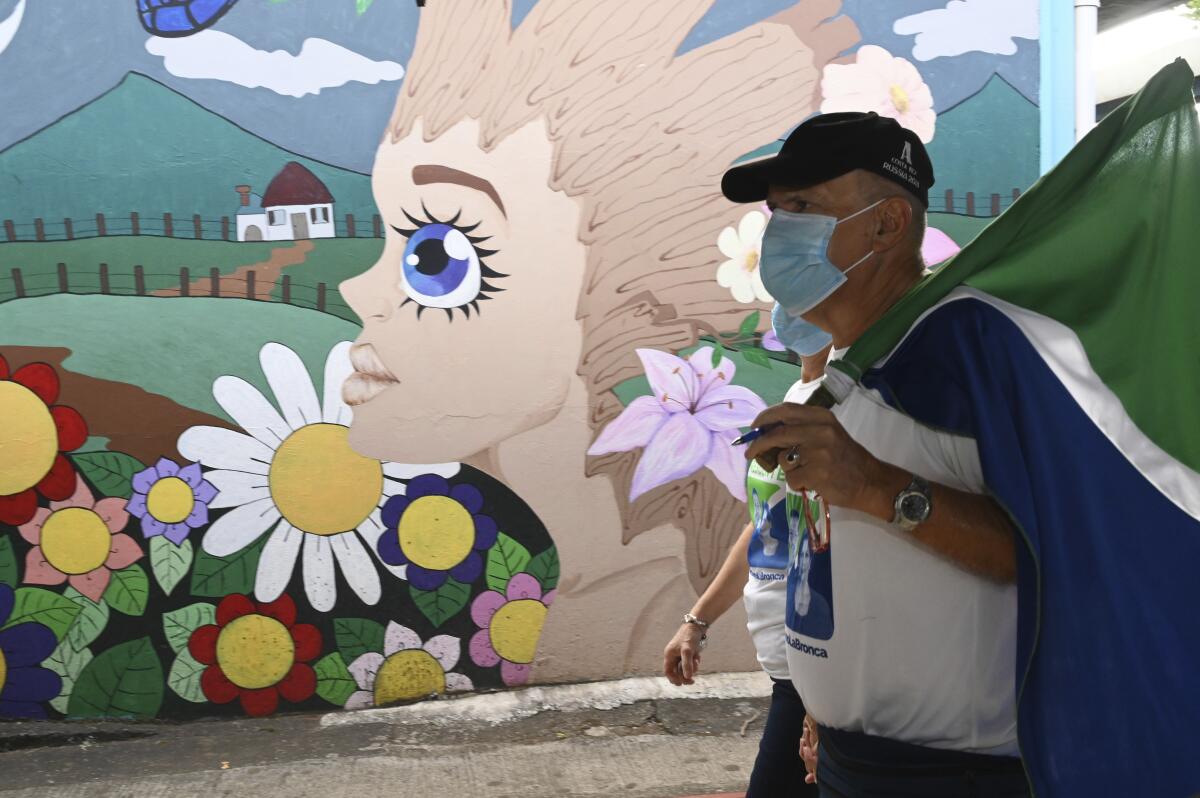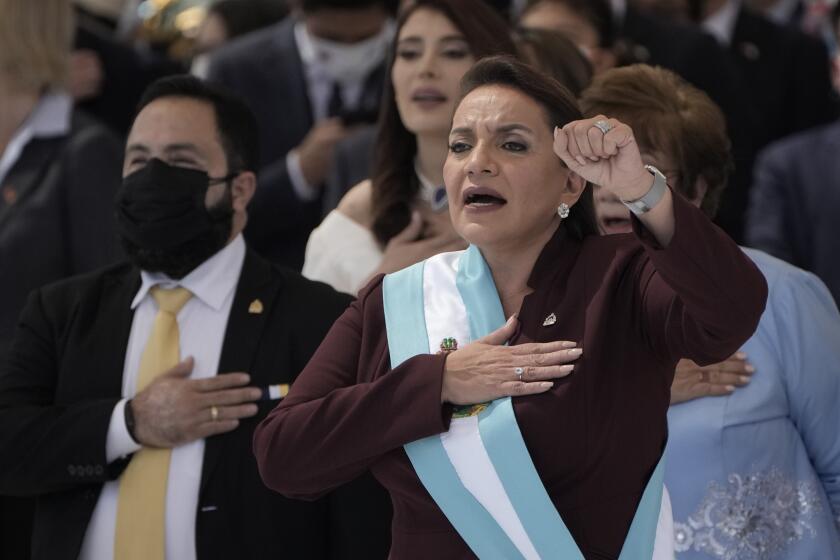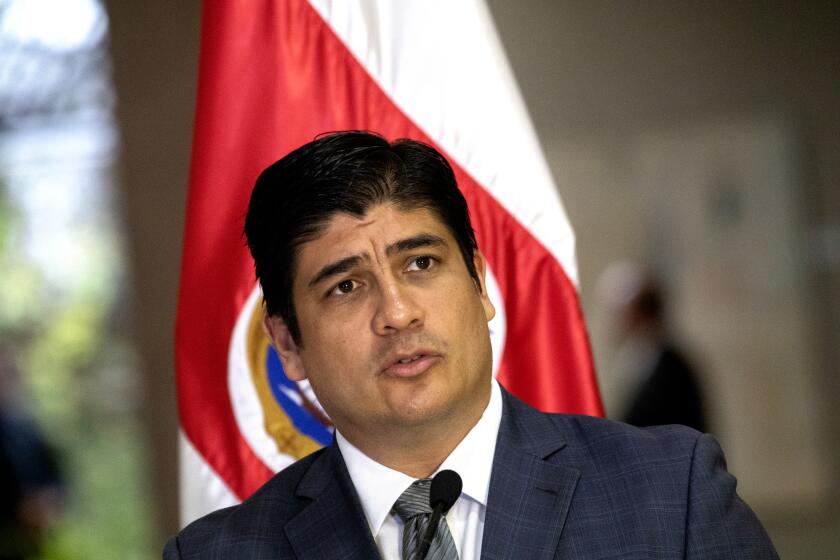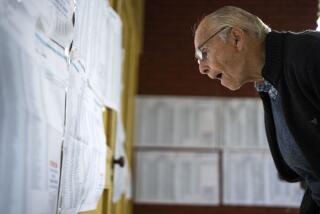Ex-president takes the lead in Costa Rica election, but a runoff looks likely

- Share via
SAN JOSE, Costa Rica — A former president took an early lead in Costa Rica’s general election Sunday, but the race appeared almost certain to head to a runoff between the top two finishers.
José María Figueres, who was the country’s president from 1994 to 1998, had 27.3% of the vote in preliminary results released by the Supreme Elections Tribunal early Monday with 80% of the votes counted. Figueres is the candidate for the National Liberation Party.
There are 25 presidential candidates running, and if none captures at least 40% of the vote, a runoff will be held April 3 between the top two vote-getters.
Behind Figueres were Rodrigo Chávez of the Social Democratic Progress party, with 16.6% of the vote; Fabricio Alvarado of the New Republic party, who lost to President Carlos Alvarado four years ago, with 15%; former Vice President Lineth Saborio of the Christian Social Unity party, with 12.5%; and Eli Feinzaig of the Liberal Progressive party, with 12.2%. Any of the four could potentially face Figueres in the second round of voting, but it appeared likely it would be a runoff in April between Figueres and Chaves.
Costa Ricans also chose a new National Assembly in the election, which took place days after the country’s top prosecutor filed papers seeking to lift departing President Alvarado’s immunity so he can face prosecution.
Costa Ricans are frustrated by high unemployment, recent corruption scandals and another surge of coronavirus infections, which are running at about 6,000 a day.
Xiomara Castro, Honduras’ new leader, faces high expectations to turn around her deeply troubled country despite a new legislative crisis.
Voting centers were busy Sunday morning as some Costa Ricans tried to beat the rush. Lines of voters lasted throughout the day. Each person had to wash hands, wear a mask and maintain distance inside the polling places.
Karla Delgado, a 34-year-old teacher, said the surging infections worried her, but she felt compelled to do her civic duty.
“I think that with a mask and all being well-vaccinated, it’s worth coming out and participating in the democratic celebration,” Delgado said. “I think the protocols are good, and I hope that all of this doesn’t increase the infections much.”
The Supreme Elections Tribunal reported good turnout across the country.
Costa Rica became the latest country to legalize same-sex marriage early Tuesday when a ruling from its high court went into effect.
“I hoped for fewer people in the morning, because you want to avoid the lines, but from what I’ve seen, a lot of people thought the same and came to vote early,” said 68-year-old retiree Carlos Rodríguez in the capital, San Jose.
He didn’t reveal his choice for president but said he hoped there would be some surprises among candidates who hadn’t polled particularly well.
“We’re going to have to come to vote again in April — I’m sure of that,” he said.
Figueres’ National Liberation Party was founded by his father, José Figueres Ferrer, who served as president on three occasions in the 1940s, ‘50s and ‘70s.
The younger Figueres has been questioned over a $900,000 consulting fee he received, after his 1994-98 presidency, from the telecommunication company Alcatel while it competed for a contract with the national electricity company. He was never charged with a crime and denied any wrongdoing.
More to Read
Sign up for Essential California
The most important California stories and recommendations in your inbox every morning.
You may occasionally receive promotional content from the Los Angeles Times.












